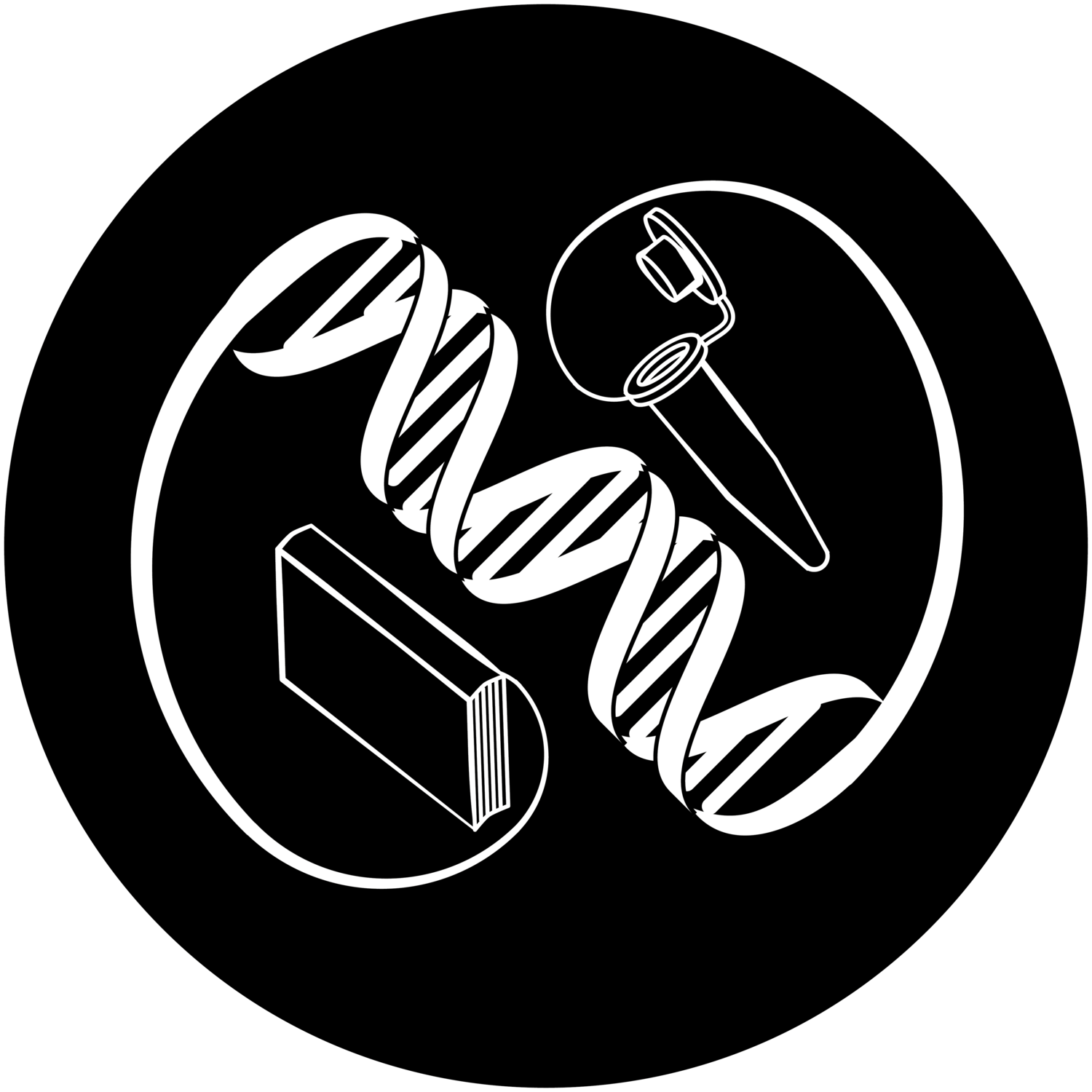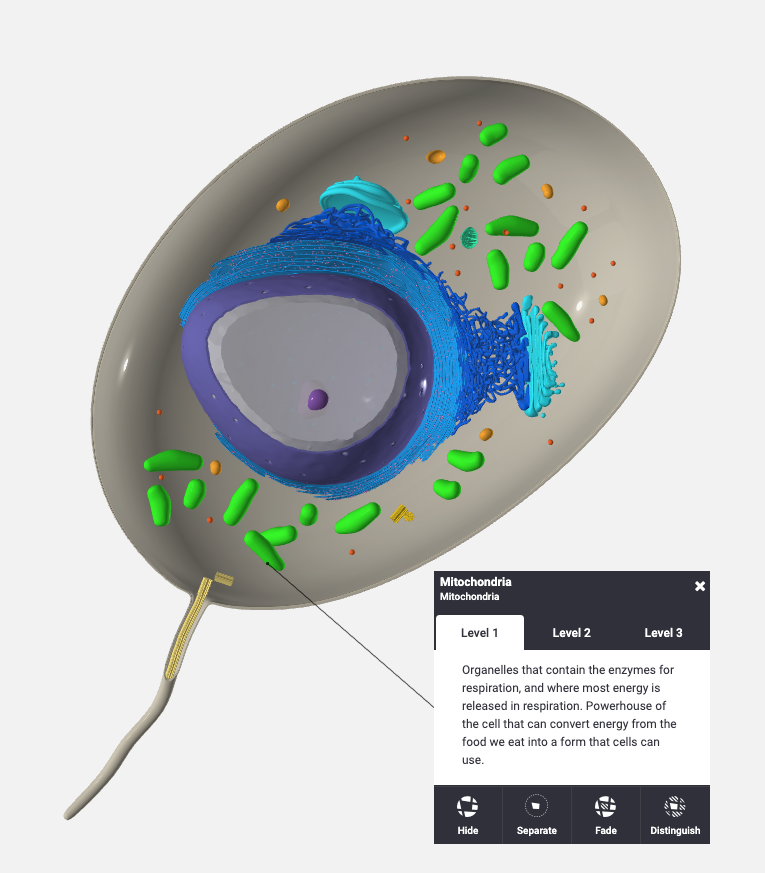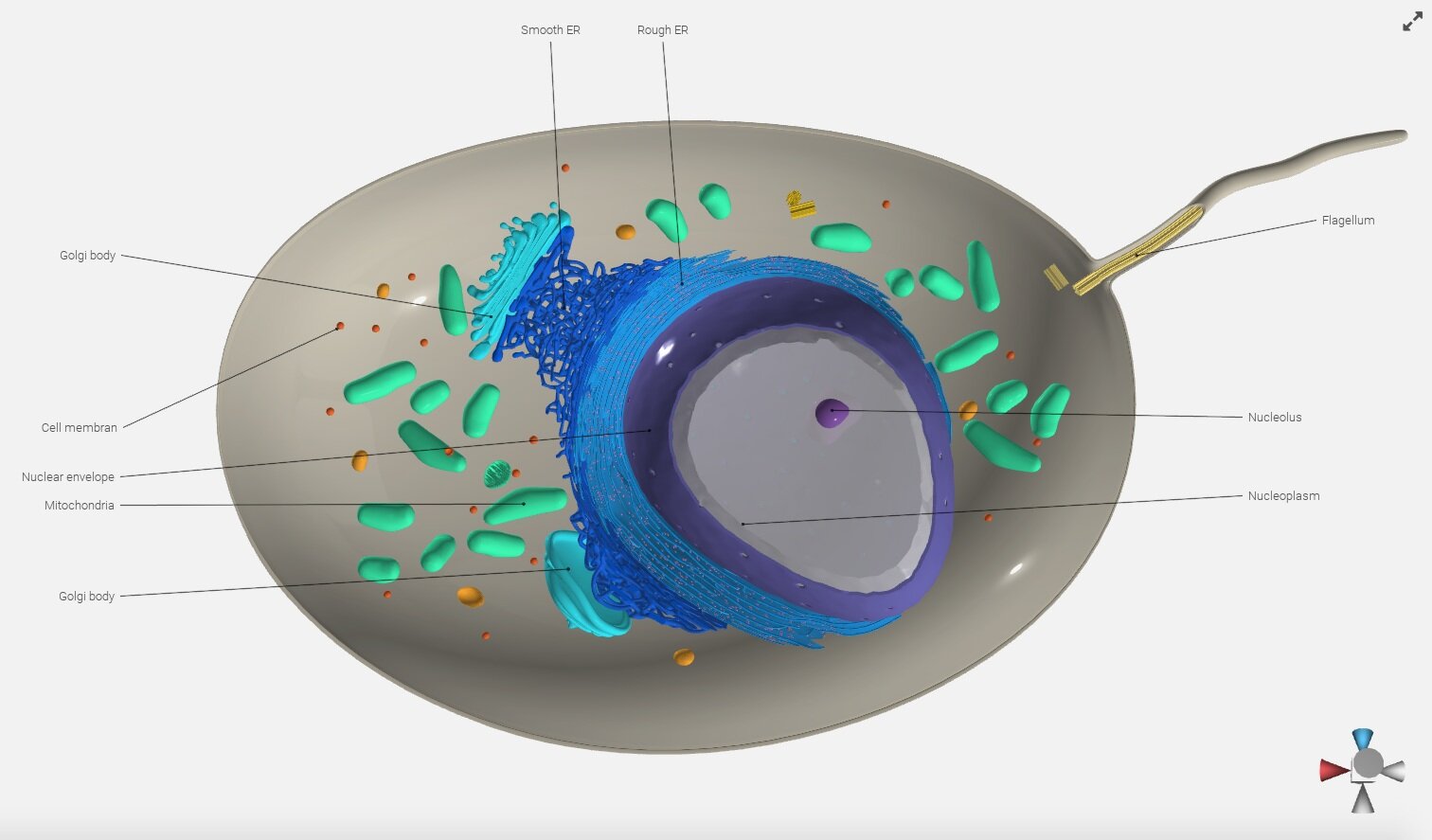The Cell Explorer
Free online, interactive 3D model allowing students to explore sub-cellular structures and processes in detail.
Suitable for: A-level or GCSE (top set Year 11) students
Classroom-based or homework activity
Time to complete : 1 lesson
Requirements: Computer(s), projector (if used as part of a lesson), worksheet printing (optional)
Click here to download all of the documents for this kit.
Screenshot of a description on the Cell Explorer
Overview
The structure of eukaryotic cells is one of the first concepts taught in many current specifications and it’s easy to think this might be simple for students to understand. However, we often forget that conceptualising something too small for the naked eye to see requires a cognitive leap. This toolkit is designed to help students understand just how tiny but complex cells are and how important understanding cells is to biology as a whole.
Many misconceptions surrounding cells and cell structure are focused on issues of scale and content. This interactive 3D model is designed to address these issues by allowing students to zoom in and out of the cell, understand what can and can’t be seen at different levels of magnification and how the organelles create the cell’s structure. Our aim is to make it easier for students to visualise the cell and its processes by allowing them to physically manipulate the cell and its organelles.
In addition to providing teacher notes and student worksheets to use with the model, we have also included a ‘research summaries’ document for students who are interested in extending their knowledge beyond the A-level curriculum.
We are working on adding new functions to the Cell Explorer (e.g. an interactive animation of meiosis). The downloadable documents will be updated to reflect new additions when they are fully functional and available.
Screenshot of the ‘exploded’ view with labels
A-level Learning Outcomes
I can describe the key features of a eukaryotic cell
I can explain the functions of key organelles
I can analyse different stages of cell division
I can calculate the size of cells and organelles using scale and magnification
I can interpret scientific experimental data to apply understanding of cell specialisation
I can explain the applications of GCSE and A level Biology to current scientific research
Access the 3D Model (free!)
Please fill out the form to access the 3D model.
We’d like to receive your feedback after you’ve used our toolkit. By submitting this form, you’re agreeing that it’s OK for us to hold your personal information for the purpose of communication, only with you, to invite your comments and to help us to improve the toolkit.
Screenshot from the Cell Explorer with labels turned on
Connection to Gurdon Institute Research
Each organelle of our 3D cell model has a short explanation of related research being carried out in research institutes around the world, including the Gurdon Institute. These short explanations are linked to a student-friendly summaries of scientific articles published by scientists. This will allow students to understand the links between the science they learn at GCSE/A level and current research into the biology of development and in diseases such as cancer.
The Toolkit Team
Two teachers and two scientists worked together with Diogo Gomes, our Learning Specialist/Project Manager to create this toolkit.
The toolkit team in front of the Gurdon Institute in Cambridge. From left to right: Sarah, Diogo, Myffy, Minaam and Dhiru
Diogo Gomes
Diogo is the Public Engagement Coordinator for the School of Clinical Medicine and Biological Sciences at the University of Cambridge. He is responsible for developing strategies and practices to embed a culture of excellence in public engagement with relevant areas of research at the University. Diogo holds a PhD from the School of Education National University of Galway, Ireland. When not working, Diogo loves playing football, running and reading.
Minaam Abbas
Minaam is an MB/PhD candidate and a Gates Scholar at the University of Cambridge. He is currently pursuing his PhD in the Kouzarides Lab at the Gurdon Institute. Minaam is investigating how enzymes involved in regulating the epigenome are subverted by cancer. He is developing a novel class of anti-cancer drugs to target these enzymes. His interest in the SCoPE project arose from his own experiences as an A level student where he remembers being bored by biology practicals! Outside of the lab, Minaam is a keen cricket and football fan and is striving towards creating the perfect sound system.
Dhiru Bansal
Dhiru Bansal is a Research Associate at the Gurdon Institute. She did her PhD in Stem Cell Biology and RNA biology where she identified a novel factor associated with flatworm regeneration. She is currently using her expertise to address the role of RNA modifications in human cancer cells. In her free time she loves to trek and play badminton.
Myffy Cairns
I studied at Natural Sciences at the University of Cambridge and graduated in 2014. Following university I completed the Teach First Leadership Development programme and gained my PGCE from Exeter University. I have been teaching for five years and taught in schools in both Dorset and Essex. I got involved in the ScoPE project as I wanted to improve my knowledge of the A level specification and develop meaningful links between current research and lesson content to better prepare students in their transition into university.
Sarah Morgan
I studied Biochemistry at Bristol University and then a PGCE in Biology at Cambridge University. I have taught in state schools since 2000, both in Essex and Cambridgeshire, and have been involved in mentoring and development of trainee teachers and delivery of teaching and learning training throughout my teaching career. I became involved in the ScoPE project as I feel it is vital to link the academic and research world with education, to make young people more aware of the opportunities and career routes that exist. It’s also been great fun, and fantastic to meet new people!
Please contact us with any questions.

This work is licensed under a Creative Commons Attribution-NonCommercial-ShareAlike 4.0 International License.





